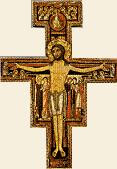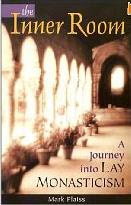
Having seen that each religious order has a spirituality that is its own, we look at our own way to holiness – the Franciscan way. The spirituality of each order is based upon the intention of its founder, to whom Christ assigned a special place and work in His Mystical Body and a particular way of holiness, along which he was to lead others to sanctity. Hence we need only to look to our Seraphic Father to find out the manner by which we are to attain holiness.
Pope Pius XII, has this to say concerning us Franciscans and our Seraphic Father: ‘The Patriarch of Assisi, the most fiery lover of the Gospel, the herald of the Great King, the shining image of Christ, wields an indescribable influence upon the hearts of all men. This influence is so great that he very frequently draws to his love even those who do not profess the Catholic Faith. How much more, then, should you who are his sons and followers, give an example of extraordinary devotion to him! Let this devotion however be evidenced more by your actions than by your words. If you truly love him, follow his precepts, walk faithfully in his footsteps, become inflamed by the inspiration of his seraphic spirit.’
We see it in the very first words of our Rule: ‘To observe the Holy Gospel of Our Lord Jesus Christ.’
Enlightened by the Holy Spirit, our Seraphic Father longed for the simple observance of the Gospel. In these words of the Rule we see the simple man. He was not tainted by the influences of pagan literature, philosophy or ethics. Thomas of Celano states: ‘His greatest desire and foremost purpose was to observe the Holy Gospel in all and through all things, to follow the doctrine of Our Lord Jesus Christ perfectly and to imitate His life with all care, with consuming zeal, with his whole mind and with all the fervor of his heart.’
To do this, our way must follow that of our Seraphic Father – complete acceptance of the Holy Gospel, led solely by the rule of Divine Love with the desire for perfection and holiness, observing ‘…poverty, humility, and the Holy Gospel of Our Lord Jesus Christ, as we firmly promised.'
We see the distinguishing character of our way to God – the observance of the purity of the Gospel, which we are to keep free from any influence that would detract from its teaching. We are to live and preserve it in its integrity, vigilant lest we fall into only a partial observance of it or look upon it with the prejudiced eye. Moreover, our total dedication to its observance must find its strength in Love. ‘You shall love the Lord Your God with your whole heart, and with your whole soul, and with your whole strength, and with your whole mind.'
















